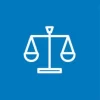It is said that the two things you can be sure of are death and taxes. While many people put off creating a financial plan for death for as long as possible, putting your house in order early on is a lot more logical. That is especially true if you have people who depend on you financially.
This moneyland.ch checklist lists things to consider when creating a contingency plan for death.
1. Appoint one or more proxies
Think about whom you would trust to carry out the myriad of tasks in your absence, and ask them whether they are willing to help. Ideally, the person should be good at administration, and have some understanding of legal and financial matters. Example of tasks that may need to be carried out by another person after you die include:
- Executing your will and testament. This is the most important proxy that you have to appoint, as they will be responsible to make sure that your inheritance is distributed correctly. It is important to choose a competent person who is good at administrative tasks and is also able to deal with people. This person needs to know where your last will and testament is stored. This should also have a way of finding out where all your assets are held. This could include private accounts, savings accounts, stock brokerage accounts, properties, safe deposit boxes, items stored in storage facilities, and cryptocurrency wallets, for example.
- Reporting your death to the government: Depending on where you die, it may be necessary for someone to deliver a certification of death issued by a doctor to the municipal government personally. If you die in a Swiss hospital or care home, the institution will generally report the death to the authorities. But if you are not in an institution when you die, someone must alert the municipal government about your death. If you pass away while in a foreign country, someone will have to report the death to the Swiss embassy or consulate in that country, in case the local authorities do not handle this task.
- Alerting friends and relatives about your death. This person will need to have a way to access a list of your friends and family along with contact information. You should create a list of all relevant contacts, and either give it to your appointed proxy or let them know where to find it in the event of your death.
- Organizing the funeral. It can be helpful to choose a person with a talent for event management. If you have a specific idea of where and how your funeral should be carried out, it can be helpful to clarify this in a document.
- Helping your dependents to claim pensions. This person needs to have a clear overview of your family situation (including your children and those of your partner or ex-partner, your spouse, ex-spouses, and non-married romantic partners). They should also have a good understanding of all of the pensions that your dependents are entitled to, including Swiss, foreign, and private annuities.
- Helping life insurance beneficiaries to claim benefits. Make sure that the person you appoint can access copies of all your life insurance policies (including those stored online).
- Checking your email and messaging services. This person will need to be able to access your email accounts and messaging services (like Whatsapp) after you die. It is important to create a document with the relevant login information, and ensure that your proxy can access the document if you die. If you are not willing to share your phone’s password with that person, make sure they have a way to access relevant messaging services without your phone.
- Managing your postal mail. It can also be beneficial for your postal mail to be redirected to your proxy for administration. The Swiss post office offers a service by which mail can be redirected to another person’s address after your death by showing either a certificate of inheritance or a notarized power of attorney.
- Managing your immediate financial affairs and paying bills. If you have dependents, you will need someone to make sure that they can still pay for rent and other living expenses until inheritances are distributed.
- Terminating your existing contracts (like insurance, credit cards, rental agreements, and mobile plans, for example). This person will need to have a way to find all of your ongoing contracts. It can be helpful to keep paper copies of contracts to facilitate this.
- Managing and/or terminating your online accounts (social media, for example). It can be helpful to keep a directory of all your online accounts, along with login information (including passwords). This should be in paper form, or on a digital medium that the person will be able to access without you having to log in or authenticate.
Giving your proxy a power of attorney can greatly facilitate their tasks. However, it is very important that you completely trust the person to act in the best interests of you and your heirs. It can be beneficial to get legal advice when creating a power of attorney to eliminate the risk of a proxy misusing the authority you give them.
2. Keep separate bank accounts
If you have a spouse or other romantic partner who depends on you for financial support, it is beneficial if they have their own bank account with a substantial emergency fund. This is exceptionally important if you have dependent children together.
The reason for this is that Swiss banks restrict access to your bank accounts when you die in order to prevent conflicts surrounding inheritances. The result is that your dependents may no longer be able to make withdrawals, use debit cards, or transfer money. Bills in your name can still be paid from your accounts, but the person who submits the bills must either have a certificate of inheritance or a will executor certificate.
Important: Access to joint accounts may also be restricted after your death.
3. Inform your heirs about your financial situation
When you die, your legal heirs are given the choice of accepting or rejecting their inheritance. The inheritance includes your assets and your debts. Being able to have some insights into your financial affairs before making such an important decision is beneficial.
Debts are the most important thing to inform your heirs about, as by accepting your inheritance, they accept your debts as well. If your debts exceed your assets, it is disadvantageous for your heirs to accept your inheritance. Make sure to account for ongoing financial commitments that could generate additional debts. It can also be beneficial to inform your heirs about your assets, and about debts owed to you by other people.
Because your heirs will have a three-month time limit within which they must decide to either accept or renounce your inheritance, it is very important that all necessary information would be readily available to them in the event of your death. Examples of important documents include copies of recent tax returns, personal loan and business loan statements, mortgage statements, loan agreements for loans from private individuals or other entities, debt collection register statements, and bankruptcy certificates, among others. If you do not want to share your financial information with your heirs ahead of time, you could consider asking a trusted friend to immediately share this information with your heirs in the event of your death.
4. Create a last will and testament
If you die without leaving a will, your assets will be inherited by your legal heirs, as per Swiss inheritance rules. If you do not have any heirs, your assets will normally be inherited by the municipal government. If you want to have a say in who will inherit your assets, you need to create a last will and testament. You are free to decide what happens to the available portion of your assets that exceeds mandatory inheritance shares.
Creating a will is relatively simple. It must be hand-written by you, and include the following information:
- Your full name, date of birth, place of origin, and current address.
- A statement that you renounce any previously-written will and testament.
- If you have heirs who are entitled to mandatory inheritance shares (specifically, a spouse or children), you must still specify that you leave the mandatory inheritance shares to these heirs.
- The full names of the people, organizations, and other entities to whom you want to leave the remaining portion of your assets. These should be listed separately, along with their date of birth, address, place of origin, and other information that can help to accurately identify the person or entity in question. For each person or entity, you must specify the amount that they will inherit from the available portion of your assets. You can specify a nominal amount in Swiss francs, a percentage, or a fraction. If you want to leave a specific item to a specific person, you must state this here as well, along with an accurate description or identifier of the item in question.
- The full name, date of birth, address, and place of origin of the person whom you appoint to execute your will. You should also name an additional person as a replacement executor. This person will be requested to execute your will if the primary person is unable or unwilling to act as executor.
- The compensation that the executor will receive for the work involved in executing your will. If you do not name a specific amount, the executor will have the right to charge customary fees based on the time and effort required.
- If you want to compensate the other people who act as proxies after your death, you can specify the compensation due.
- Your signature, along with the place and date of signing.
Once you have created your will, you should store it in a secure place that will be accessible to authorized people after you die. A bank safe deposit box is not an ideal place to store your will because your heirs or executor will not have easy access to it after you die. A simple solution is to deposit your will at your canton’s last will and testament repository office. All cantons are required to offer such a repository, though you generally pay a fee for this service.
5. Create an inheritance contract if necessary
In Switzerland, you and your heirs can jointly create an inheritance contract with which you can alter compulsory inheritance shares. Heirs who are entitled to a compulsory inheritance share can forfeit their right to part or all of their mandatory share. This can make sense if, for example, you all agree that one child or the surviving parent should inherit more. Without an inheritance contract, the mandatory inheritance shares will be inherited by the legally-defined parties by default.
Unlike your will and testament, which is only signed by you, an inheritance contract must be signed by all of the affected parties. Because of the sensitive nature of this document, the signing of the contract must be verified by a notary.
6. Understand how your dependents are insured
In Switzerland, your children and other dependents are insured against the financial risk of your death in several ways. The table below explains the pensions for dependents that come with obligatory Swiss insurance and pension schemes, and the criteria for claiming pensions.
If you are divorced, your ex-spouse can also claim pensions from the OASI if certain criteria are met. The same applies to your accident insurance, but not to your occupational pension fund.
Your surviving dependents who receive a survivor’s pension from the OASI can apply for supplemental benefits if they live in Switzerland and their income and wealth fall below certain thresholds.
Occupational pension funds may, if they so choose, offer a pension for an unmarried partner with whom you have lived for at least 5 years, or with whom you have a dependent child. Pension funds can also offer pensions for other people who are substantially dependent on you financially, such as a disabled sibling. Pensions for legal heirs other than a spouse or children are also possible. Each pension fund is free to choose whether or not to offer these non-compulsory pensions. Check the terms and conditions of your pension plan to see if your pension fund offers this benefit.
It is important to check if your employer’s pension fund plan and accident insurance policy include complementary cover on top of what is required by law. Some employers get additional insurance that closes the gaps between the basic, required pensions and the actual loss of income.
7. Close gaps with term life insurance
Life insurance can be used to close gaps if the pensions your dependents would receive from the OASI, your pension fund, and your accident insurance – accounting for possible supplementary insurance – would not adequately cover their financial needs. That could be the case, for example, if you have a mortgage on your family’s home, and your death would result in your family not being able to meet the affordability requirements for servicing the mortgage.
The moneyland.ch guide to choosing term life insurance shows you the most important things to consider. You can compare offers using the interactive term life insurance comparison on moneyland.ch.
It is a good idea to choose a life insurance benefit that is somewhat higher than the actual amount needed. That way you also cover the taxes that your beneficiaries will have to pay on the insurance benefits they receive.
Important: Do not get confused between term life insurance and cash-value life insurance (often called savings insurance or
mixed life insurance). Term life insurance is pure insurance that pays out a lump-sum of money to your beneficiaries if you die within the insurance term. Cash-value life insurance, on the other hand, combines insurance with some form of saving or investment, and is generally not an optimal insurance or saving solution. It is advisable to use pure term life insurance for closing gaps.
8. Consider creating an advanced healthcare directive and living will
An advanced healthcare directive is a document on which you can specify how you would want to be treated medically if you were ever to lose your ability to make conscious decisions. That could be the case, for example, if an accident were to leave you in a coma, or if you were to suffer from dementia in your old age.
In addition to medical decisions, you can also designate a proxy to manage your everyday affairs when you are physically incapable of doing so. You can do this by giving the person of your choice a power of attorney. A limited power of attorney must specify the exact activities which your proxy can perform on your behalf. A general power of attorney entitles another person to make many different decisions and perform many different tasks on your behalf. A power of attorney typically expires when you die, but it is possible to make a trans-mortem power of attorney that continues to apply after your death.
It is very important that you get the approval of the people you want to appoint. You should also clearly specify both their responsibilities and the compensation that they will receive for their work.
9. Make a tax plan
In Switzerland, inheritance taxes are normally levied by the canton and municipality in which you lived at the time of your death. An exception to this rule is if you own real estate in a different canton. In that case, a portion of the inheritance is taxable in the canton where your property is located.
Your spouse is exempt from inheritance taxes in all cantons. Five cantons – Appenzell Innerrhoden, Lucerne, Neuchâtel, Solothurn, and Vaud – levy taxes on your children’s inheritances, but at special, lower tax rates. Half of Switzerland’s cantons levy taxes on assets you leave to your parents. Only two cantons – Obwalden and Schwyz – do not levy inheritance taxes on money you leave to people who are not related to you.
Few people would move to another canton solely on the basis of inheritance taxes. But it is worth noting that if the beneficiary is not related to you, which canton you live at the time of your death can make the difference between them getting your full inheritance, or losing a large part of it to inheritance taxes.
US estate tax on stocks and other securities
The United States levies an inheritance tax known as estate tax on the value of US stocks, US-domiciled investment funds (mutual funds, ETFs, index funds), derivatives and structured products from US issuers, US real estate, and tangible assets held in the US. The tax can be as high as 40 percent, and applies regardless of where you resided. For residents of most countries, the tax is levied on the portion of assets that exceeds a threshold of 60,000 US dollars (in 2025).
However, thanks to a double-taxation agreement with the US, Swiss investors only pay US estate tax on the portion of assets that exceeds the much higher threshold that also applies to residents of the US. In 2025, the threshold is 13,990,000 US dollars. If the value of your US assets exceeds that threshold, it can be worth adjusting your portfolio so that assets that are subject to US estate tax fall below the threshold.
10. Consider what will happen to your children
In Switzerland, if an underaged child loses both parents (or one parent that has sole custody), then responsibility for the care of the child goes to the municipal child and adult protection authorities (APEA/KESB), which appoints a legal guardian.
However, you can recommend a person to be your child’s legal guardian if you die. To do this, you must create a document known as a guardianship provision (German: Sorgerechtsverfügung, French: directive anticipée en matière d'autorité parentale). On this document, you must clearly name the person whom you would like to become your child’s legal guardian in the event of your being killed or incapacitated. The document should include the full legal names, dates of birth, and addresses of both your child and the proposed guardian. It should also state how the proposed legal guardian is related to you.
You can also propose additional guardians, for the event that your preferred guardian is unable or unwilling to assume the role. Additionally, you can specifically name people whom you do not want to become your child’s guardian. This document should be stored in a secure location that is accessible to your will executor or another trusted person.
Some child and adult protection authorities provide a guardianship provision form that you can fill out and submit to them. When this is possible, it is generally preferable to creating your own document that you keep in your own custody, because it eliminates the risk of loss or confusion about the document’s authenticity.
11. Consider what will happen to your pets
If you know someone who would be willing to care for your pets if you were to pass away, then there are two steps that you should take:
- The first is to leave your pets to that person in your will. From a legal standpoint, pets are considered property and are therefore part of your estate, so they will either fall into the compulsory inheritance share if the person is entitled to one, or must be included in the unrestricted portion of your estate.
- The second step is to create an enduring power of attorney in which you give that person the authority to care for your pets and make important decisions if you are ever physically incapable of doing so.
If you do not have an acquaintance who is willing to act as your pet’s godparent, then you should contact a nearby animal shelter. Many Swiss animal shelters offer a service by which you can name them as your pet’s guardian.
In every case, it is important to ensure that the new guardian will be contacted as soon as possible after your death.
12. Make a funeral plan
The cost of a funeral depends on which municipality you live in. In the vast majority of Switzerland’s municipalities, the costs of undertaking and a funeral can run into many thousands of francs. The City of Zurich is exceptional in that a basic funeral – including undertaking, cremation, and a grave plot with a standardized memorial – is provided to the city’s residents free of charge.
Consider researching the exact costs in your municipality. If you want to be buried in a municipality other than the one you live in, then you should look into the costs in that location. Typically, municipalities charge higher prices for non-residents.
The costs must be covered by your estate. If your estate is not large enough to cover the costs, liability to cover the costs falls on your spouse and children. This is true even if these heirs reject their inheritance.
If you do not have a large estate, it can be beneficial to create a budget and set aside money towards the cost of your funeral. If you plan to take out term life insurance to insure your dependents against the risk of your dying unexpectedly, it is beneficial to account for funeral costs when calculating the necessary life insurance benefit.
More on this topic:
Compare Swiss term life insurance offers now
Swiss inheritance rules: A basic guide
Marriage in Switzerland: The financial pros and cons
Having a baby in Switzerland: Financial questions and answers
Divorce in Switzerland: A financial guide


 Deal of the Day
Deal of the Day 







